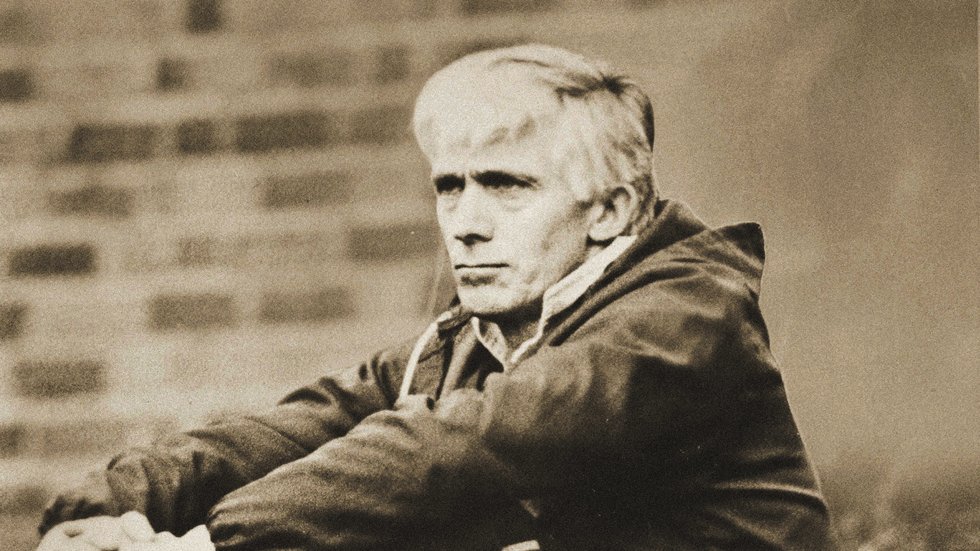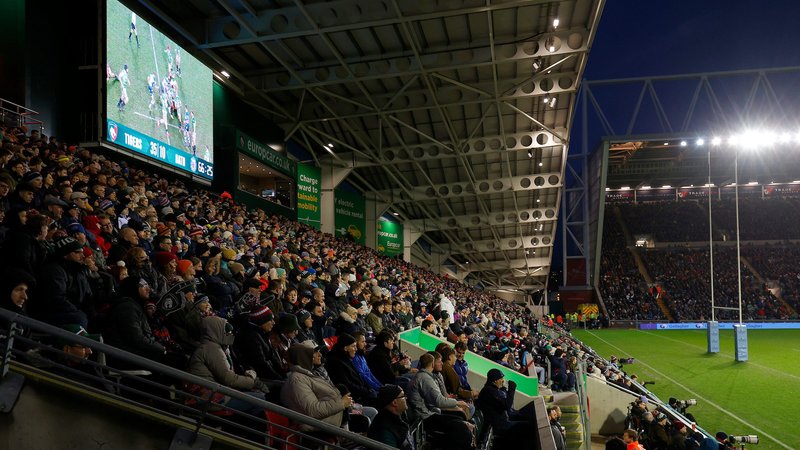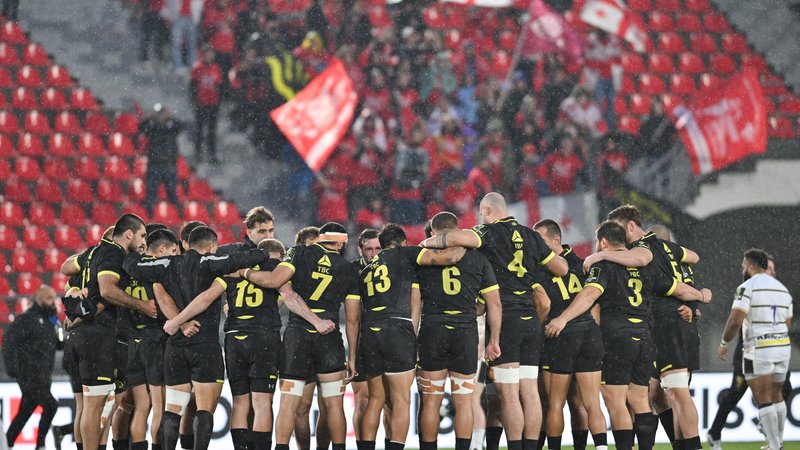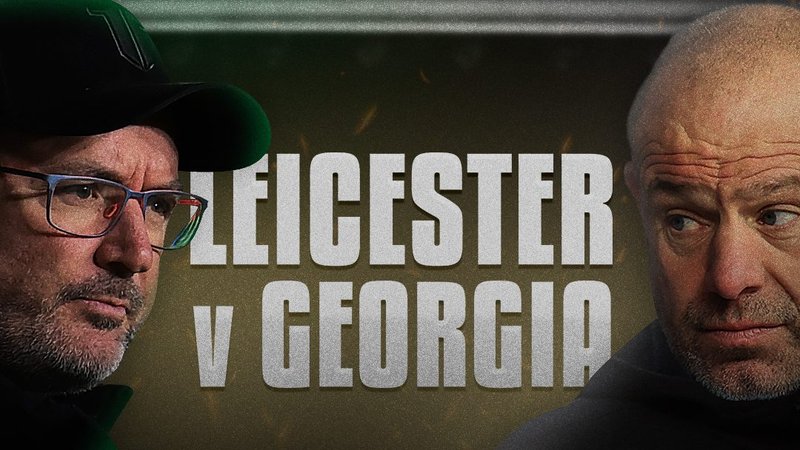Our ABC to Z of all things Leicester Tigers takes us to the letter C.C is for Crumbie
Tom Crumbie was one of the most influential figures in Leicester Tigers’ long and illustrious history.
He took over as honorary secretary in 1895, presiding over a hugely successful period in the club’s history and laid the foundations for its future growth and success.
He made Tigers an invitational side, introduced the traditional Christmas period fixture against the Barbarians and was responsible for the development of the Welford Road stadium.
During his tenure, the North Stand – or the Members’ Stand – was reconstructed before World War I, and the south stand which carried his name, now named the Holland & Barrett Stand, opened two years after the war.
C is for Chalkie
Another hugely influential figure in Tigers’ history, Chalkie White made 147 appearances at scrum-half but it was as a coach that he forged an outstanding reputation.
Indeed, Herbert Victor White – or Chalkie as he is commonly known – is described in the new Tigers History Book as “the best coach England never had”.
His analytical and innovative approach, allied to a tactical and technical awareness as well as a counselling and mentoring side, reaped the rewards as Tigers recorded a hat-trick of John Player Cup victories between 1979 and 1981.
His coaching skills and approach to the game are regarded as a key part of the club’s development and give him a unique place in Tigers’ history.
C is for Cinder Bank
The Cinder Bank goes hand-in-hand with Chalkie White. The Cinder Bank occupied the east end of Welford Road, the end at which the Goldsmiths Stand is now situated, and was used during the week by Chalkie White as a dreaded part of the squad's fitness regime, with players doing shuttle sprints up and down the bank at the end of a training session.
By the weekend, it was a popular spot on which supporters would perch to watch Tigers in action, on which younger fans would practice their own rugby skills, and on which the players would park their vehicles.
It is said that Richard Cockerill ensured he got the prime spot for his antique restoration van whenever the BBC’s Rugby Special cameras were at Welford Road!
C is for Caterpillar
Leicester Tigers began their long association with Caterpillar, the Desford-based construction giant, in 2008.
An initial five-year agreement saw Caterpillar become the club’s sole sponsor across the Tigers playing kit, and included naming rights to the new North Stand.
Caterpillar renewed its support of the club in 2013, remaining the main club sponsor.
The company employs 10,000 people in the UK to support, design, develop and manufacture heavy equipment and engine products for its global customer base.
Caterpillar have already shared in some major occasions with the Tigers, including the historic win over South Africa at Welford Road in 2009 and the Premiership title wins of 2009, 2010 and 2013. Click here to watch highlights of the South Africa win.
C is for community
Leicester Tigers is proud of its unique place at the heart of the community.
The award-winning Tigers community team run rugby and education projects across Leicester, Leicestershire and the wider Tigers regions.
Tigers bring rugby to thousands of young players every year through club programmes such as the Rugby Camps, Matchday Coaching Clinics and the Prima Tiger Cup, as well as the Land Rover Premiership Cup and Tigers Challenge.
C is for Corry
Martin Corry won every major honour with club and country. After spells with Newcastle and Bristol, he joined Leicester Tigers in 1997 and won five Premiership titles, two Heineken Cups and an EDF Energy Cup, captaining the club to the first league and cup double of the professional era in 2006/07.
Cozza, as he is affectionately known, won 64 caps for England and captained his country for two seasons. He played at three Rugby World Cups, including England’s successful 2003 campaign, and played in seven Tests for the British & Irish Lions.
C is for Cusworth
Les Cusworth was one of the most talented fly-halves of his and any generation with a reputation for elegant, attacking rugby.
His 365 games for Tigers put him 11th on the all-time list, while his 947 points put him ninth in the scorers’ chart. He played in the three successive John Player Cup finals
He played in the three John Player Cup final wins in 1979-81 and in the final defeats of 1983 and 1989, and was a member of the squad that won the league title in 1989.
News
Tigers ABC to Z: C is for Chalkie & Crumbie
26 June 2015 2:53 PM

Share this article
Articles
Tigers ABC to Z: C is for Chalkie & Crumbie
26 June 2015 1:53 PM
Game Plan | Back home against Bears
23 April 2024 10:59 AM
Only single seats remain for Bristol fixture
19 April 2024 3:00 PM
Black Lion: The lowdown on Tigers' newest opponents
23 April 2024 2:30 PM
GET YOUR TICKETS HERE
Cokayne returns as Roses set for Grand Slam showdown
25 April 2024 4:00 PM
Four Tigers involved as in Scotland's final round clash in Belfast
25 April 2024 10:00 AM
Bristol week | Tigers back at Mattioli Woods Welford Road
22 April 2024 8:41 AM
Disciplinary outcome: Solomone Kata
24 April 2024 1:38 PM
2024 Tigers Challenge sees over 2'000 players take part
22 April 2024 12:30 PM
30% OFF ONLINE & IN-STORE






